The 6 Best Calibration Software of 2024
1. MET/CAL by Fluke
- Trusted by National Metrology Institutes and renowned organizations
- Automated calibration management for increased efficiency
- Web and on-premise platforms supported
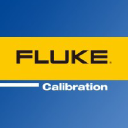
MET/CAL by Fluke is a trusted calibration software used by National Metrology Institutes and renowned organizations for efficient, automated calibration management. It offers support for both web and on-premise platforms, making it a versatile solution for businesses.
2. Beamex CMX
- AI-optimized calibration management software
- Automated alerts and data transfer
- Compliance with quality standards and regulatory requirements
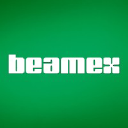
Beamex CMX is an AI-optimized calibration management software that offers automated alerts, comprehensive reporting, and seamless integration for efficient and compliant calibration processes.
With its intuitive interface and powerful features, Beamex CMX is the top choice for businesses seeking to streamline calibration management and ensure optimum accuracy.
3. ProCalV5 by PrimeTechnology
- Comprehensive calibration system
- Cloud-based with offline access
- Efficient migration to paperless workflows
- Automated calibration and task listing
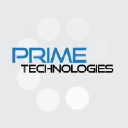
ProCalV5 by PrimeTechnology offers a comprehensive calibration system that ensures compliance with strict standards and regulations, along with efficient migration to paperless workflows. It facilitates multiple assets calibration, task listing and assignments, and event history, providing a holistic solution for businesses.
4. IndySoft
- User-friendly interface for easy navigation
- Comprehensive asset management and calibration capabilities
- Customizable reporting and analytics for better decision-making

IndySoft is a comprehensive asset management and calibration software that offers a user-friendly interface, customizable reporting, and flexible pricing options. With its advanced functionality, businesses can streamline calibration processes and ensure compliance with regulatory standards.
Contact the sales team for a personalized quote and to discover how IndySoft can optimize your asset management workflows.
5. Calibration Control by Ape Software
- Efficient calibration management
- User-friendly interface
- Customizable to business needs
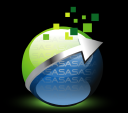
Calibration Control by Ape Software offers a comprehensive solution for efficient and customizable calibration management, making it an ideal choice for businesses seeking to optimize their calibration processes.
With user-friendly features, competitive pricing, and positive user reviews, Calibration Control by Ape Software provides a reliable and effective solution for businesses of all sizes.
6. GAGEtrak Pro by Cybermetrics
- Trusted by quality professionals for over 35 years
- Recommended by auditors worldwide
- Rich feature set including gage management, scheduled calibrations, certification generation, and more
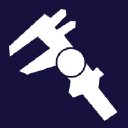
GAGEtrak Pro by Cybermetrics is the leading calibration management software trusted by quality professionals and auditors for over 35 years. With a rich feature set and flexible licensing options, it allows you to streamline your workload, maintain production schedules, and ensure compliance with international quality standards such as FDA and ISO.
Improve efficiency, minimize costs, and maintain customer approval with GAGEtrak Pro by Cybermetrics, the trusted solution for modernizing measurement and test equipment management.
FAQ
What are the key features to look for in calibration software?
When choosing calibration software for your organization, it's important to consider several key features. These include automated scheduling and notifications to streamline the calibration process, audit trail functionality for regulatory compliance, integration with measurement devices to ensure accuracy, and reporting capabilities for data analysis and decision-making.
How can calibration software benefit my business?
Calibration software offers several benefits for businesses, including improved efficiency and accuracy in calibration processes, enhanced regulatory compliance through automated documentation, cost savings by minimizing downtime and reducing errors, and better decision-making through detailed data analysis.
What role does calibration software play in quality management?
Calibration software plays a crucial role in quality management by ensuring that measurement instruments and equipment are consistently accurate and reliable. This directly impacts product quality, regulatory compliance, and customer satisfaction. Additionally, calibration software provides historical data tracking to support continuous improvement initiatives.
How does calibration software support planning and forecasting?
Calibration software supports planning and forecasting by providing real-time visibility into the status of measurement instruments and equipment. This enables organizations to predict maintenance needs, optimize resource allocation, and minimize operational disruptions due to unexpected calibration issues.
What are the security considerations when implementing calibration software?
When implementing calibration software, it's important to consider data encryption to protect sensitive calibration records, access control mechanisms to ensure data integrity, and regular software updates to address potential security vulnerabilities. Additionally, organizations should establish user training and best practices to mitigate security risks.
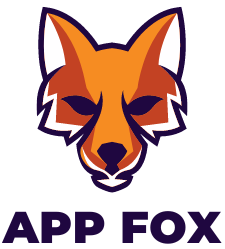
FAQ
When choosing calibration software for your organization, it's important to consider several key features. These include automated scheduling and notifications to streamline the calibration process, audit trail functionality for regulatory compliance, integration with measurement devices to ensure accuracy, and reporting capabilities for data analysis and decision-making.
Calibration software offers several benefits for businesses, including improved efficiency and accuracy in calibration processes, enhanced regulatory compliance through automated documentation, cost savings by minimizing downtime and reducing errors, and better decision-making through detailed data analysis.
Calibration software plays a crucial role in quality management by ensuring that measurement instruments and equipment are consistently accurate and reliable. This directly impacts product quality, regulatory compliance, and customer satisfaction. Additionally, calibration software provides historical data tracking to support continuous improvement initiatives.
Calibration software supports planning and forecasting by providing real-time visibility into the status of measurement instruments and equipment. This enables organizations to predict maintenance needs, optimize resource allocation, and minimize operational disruptions due to unexpected calibration issues.
When implementing calibration software, it's important to consider data encryption to protect sensitive calibration records, access control mechanisms to ensure data integrity, and regular software updates to address potential security vulnerabilities. Additionally, organizations should establish user training and best practices to mitigate security risks.